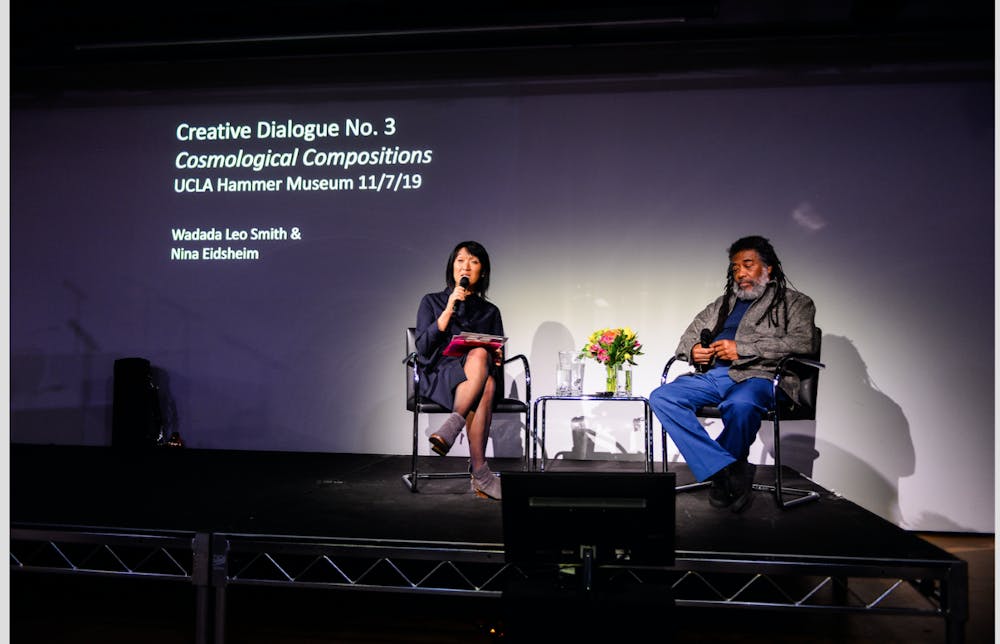Eighth note. Quarter note. Half note. Musicians are used to reading and playing a musical language that tells them exactly how to play a piece. But what if there was another way — one that uses symbols instead of notes, allowing musicians to bring different meanings to a piece while teaching people about life?
At the Pruett Lecture, part of the Carolina Symposia in Music and Culture, UCLA musicology professor Nina Eidsheim will be discussing the work of musician Wadada Leo Smith and his development of a new “musical-philosophical language.”
The lecture is free to attend and will take place on Jan. 24 at 4:15 p.m. in Person Hall.
Eidsheim studied with Smith while she pursued her master’s degree at the California Institute of the Arts. There she learned about Ankhrasmation, a new musical language Smith developed. Ankhrasmations consist of symbols that are read as scores and are considered to be works of art.
After reading the score, musicians are encouraged to do their own research on the music and come to their own conclusions about what the music means.
“Musical space is like a laboratory where we really can think about meaning making and how maybe my meaning is different than yours, but our meanings can be together and make something together,” Eidsheim said.
Emily Hynes, a graduate student studying musicology, is interested in how Eidsheim’s presentation will help her in her own work.
“I do work on Black prison music from the 1930s and 1940s, so the timeframe of this is not necessarily the same, but I think that her theoretical backing might be useful,” Hynes said. “Some of her frameworks might be useful. Sometimes you can apply these things to your own work even though it's a tangentially-related topic.”
Aldwyn Hogg Jr., a Ph.D. candidate in musicology, is looking forward to learning about a new perspective on music.




